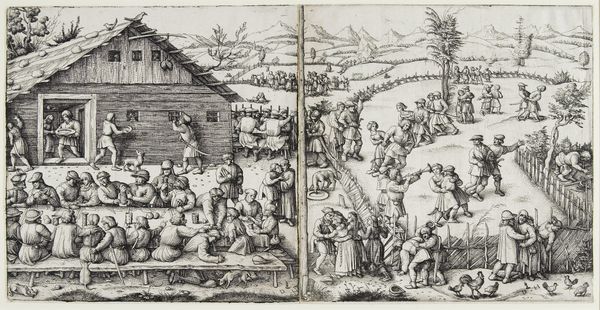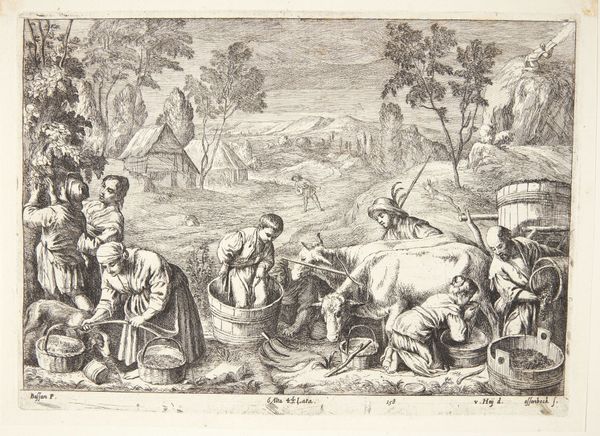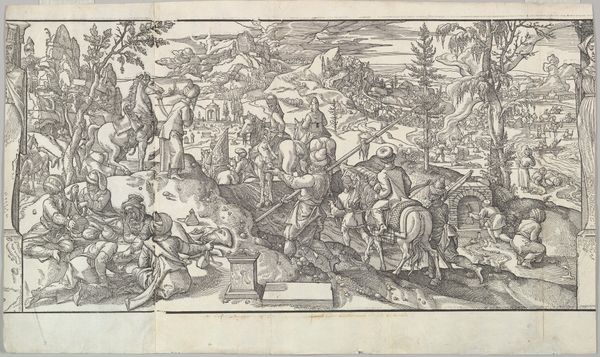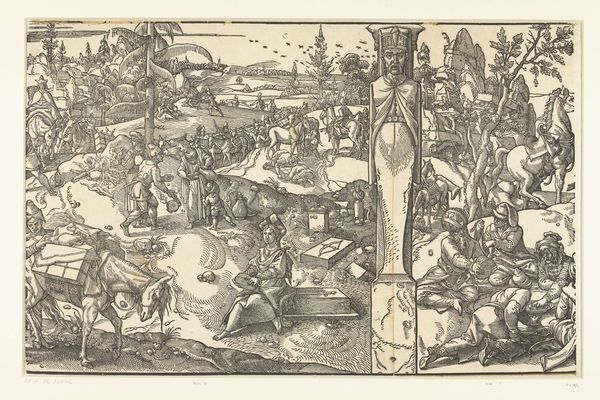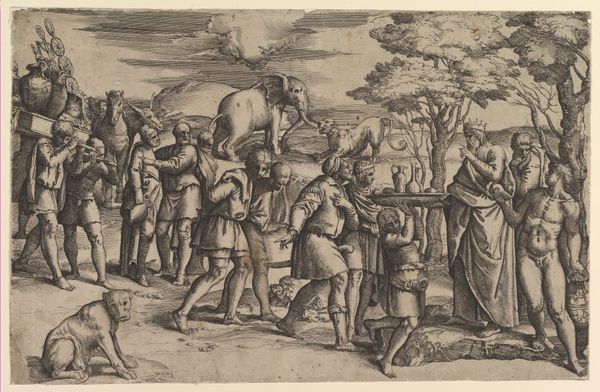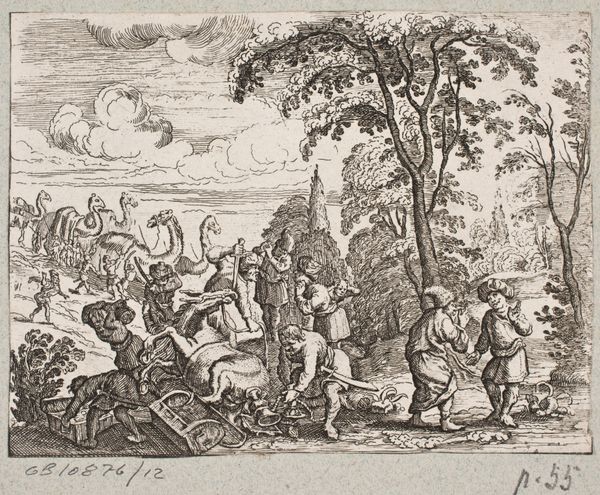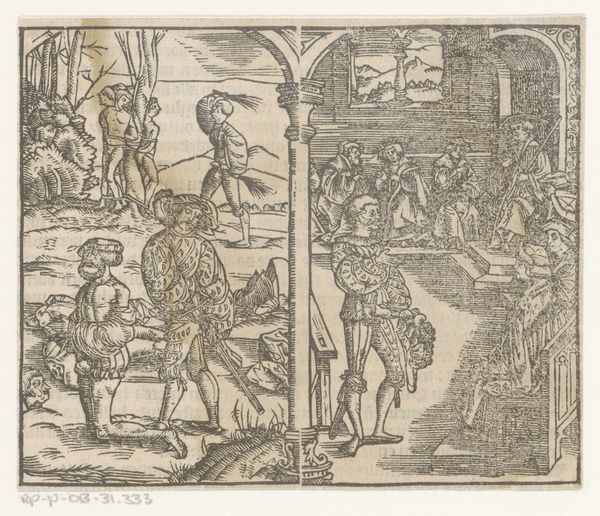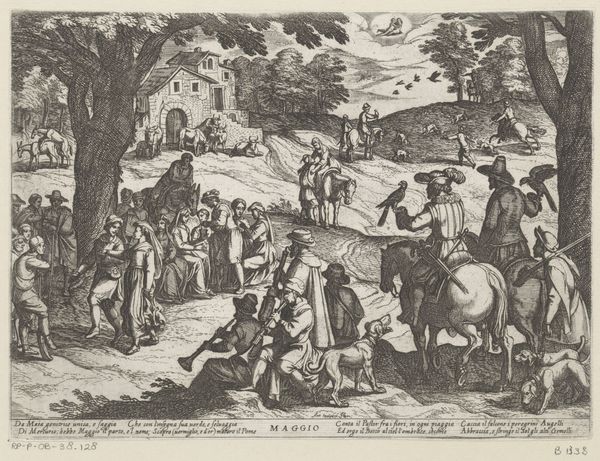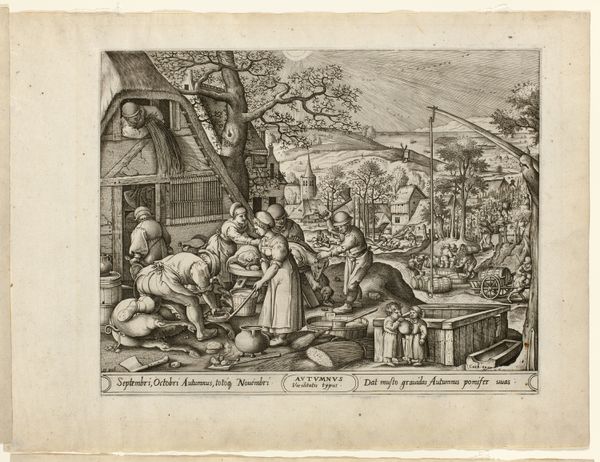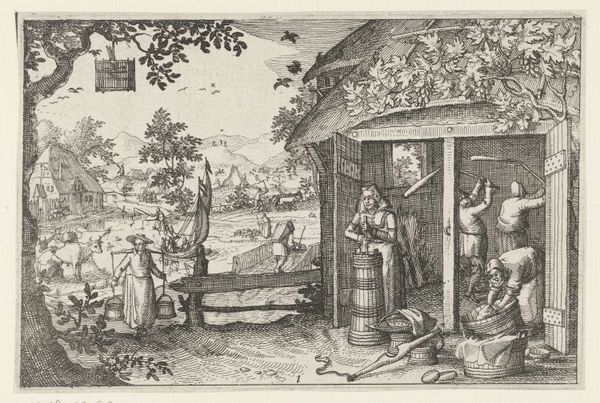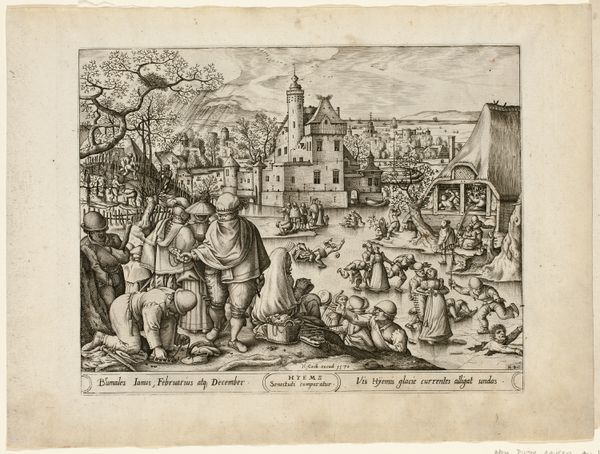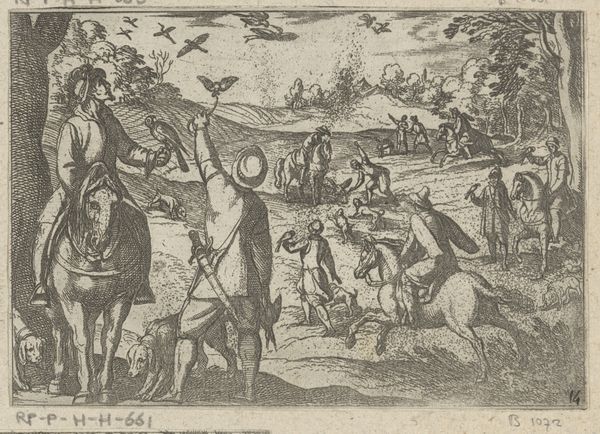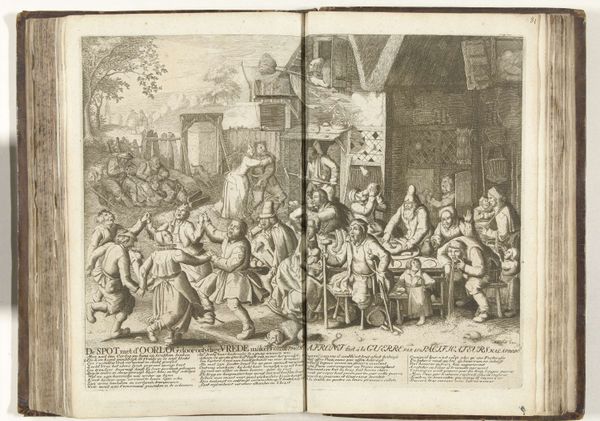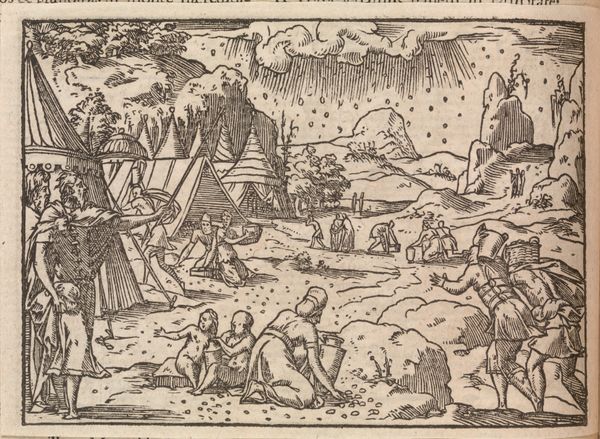
drawing, print
#
drawing
# print
#
landscape
#
figuration
#
11_renaissance
#
genre-painting
#
northern-renaissance
Dimensions: 9 5/8 x 19 3/16 in. (24.45 x 48.74 cm) (plate) (overall)
Copyright: Public Domain
Daniel Hopfer created this print, The Festival, using iron sometime in the late fifteenth or early sixteenth century. Hopfer was a master of etching, using acid to bite lines into the metal. The image is all about labor. Serving and preparing food. The labor of merriment, of fellowship. Even the labor of courtship, the way these young men and women are circling around one another. The making of the print itself is also work. The careful rendering of the scene, the cross-hatching that gives a sense of depth and volume. The lines must have taken weeks to complete. These kinds of prints were relatively cheap to produce, making images widely accessible. Though we don't know who originally purchased this print, it's clear that Hopfer was creating art for a new kind of consumer. The print is a great reminder that all artworks—no matter how seemingly elevated—are fundamentally rooted in the physical world.
Comments
minneapolisinstituteofart about 2 years ago
⋮
Early printmakers never tired of depicting peasant shenanigans. In the sixteenth century peasants were seen by some as emblems of native German culture, while others, like Martin Luther, worried they would disrupt the social order. Across the two halves of The Festival, separated down the middle by a tree, peasants engage in the excesses that so fascinated the staid middle class-imbibing, arguing, fondling, dancing, and vomiting. Even so, the print's orderly composition suggests a more balanced view of the subject. The pride of Augsburg, Daniel Hopfer is credited with making the first etchings in the history of printmaking.
Join the conversation
Join millions of artists and users on Artera today and experience the ultimate creative platform.
